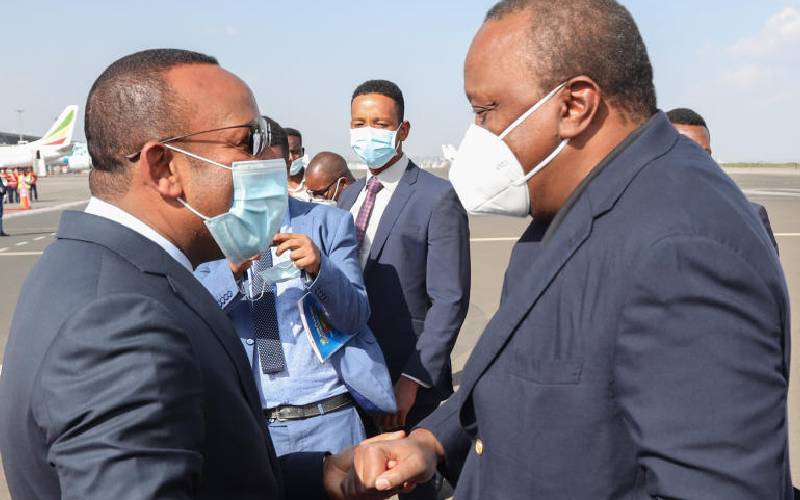×
The Standard e-Paper
Stay Informed, Even Offline

President Uhuru Kenyatta arrives in Addis Ababa, Ethiopia, for an official visit where he was received by Prime Minister Abiy Ahmed on June 9.
The fighting has continued, the deaths have accumulated, the displacement persists and suffering and humanitarian emergency has taken root in the country.